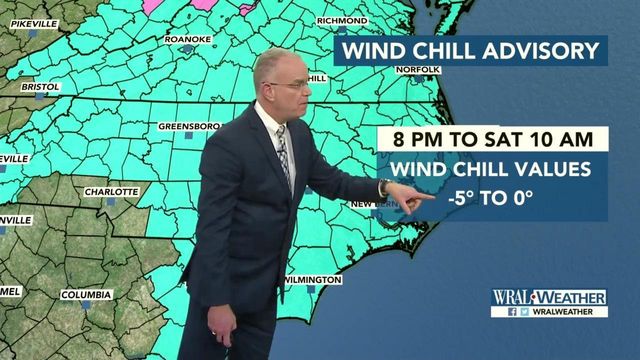It's still so cold. Where did the snow go?
The ground temperature has hovered just below freezing all week. Air temperatures won't be high enough to promote direct melting of snow and ice until Monday. So where did all the snow go?
Posted — UpdatedSo where did all the snow go?
The obvious answer, the sun, is correct but not for the reason you might think. The evidence is right in our yards and roads. Snow and ice remain in areas that the sun hasn’t reached yet. But that melting isn’t as direct as it might appear.
Snow has a very high albedo, reflecting about 90 percent of the sunlight that falls on it (ice reflects around 50 percent). Very little of the melting is happening directly. Instead, the solar energy is heating objects (buildings, shrubs, roadway, etc.) which are far more efficient at transferring heat to the snow and ice, melting it.
If you pass any open fields on your way home today, notice that snow remains there the longest. In your own yard, notice that the snow tends to recede first around trees. This is also why dirty snow melts faster than clean snow. The little dark bits pick up and transfer heat energy.
Sublimation, where solids (ice) pass directly to a gas (water vapor) without passing through a liquid state (water), is another factor. You can see this at work in your freezer in shrinking ice cubes. Low dew points and air pressure like we saw on Thursday help promote this process.
This is where direct sunlight on snow does reduce the snow. Snow absorbs energy in the near-infrared portion of sunlight, speeding up its water molecules and resulting in sublimation.
Melting and refreezing should not be a big problem this weekend either. Not because of the cold but because of the dry air.
With dew points expected to remain below zero through Sunday evening, that cold dry air is very good at absorbing moisture. Forecasted light winds are also very helpful with evaporation.
Related Topics
• Credits
Copyright 2024 by Capitol Broadcasting Company. All rights reserved. This material may not be published, broadcast, rewritten or redistributed.






